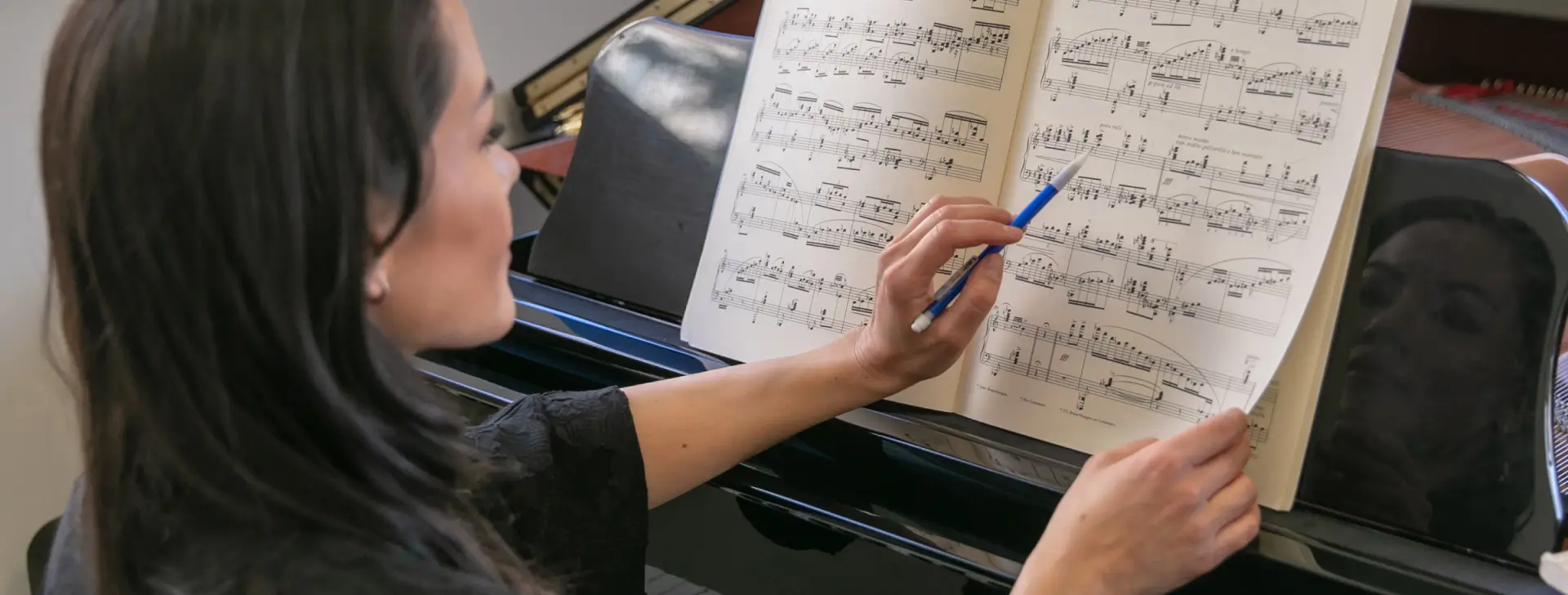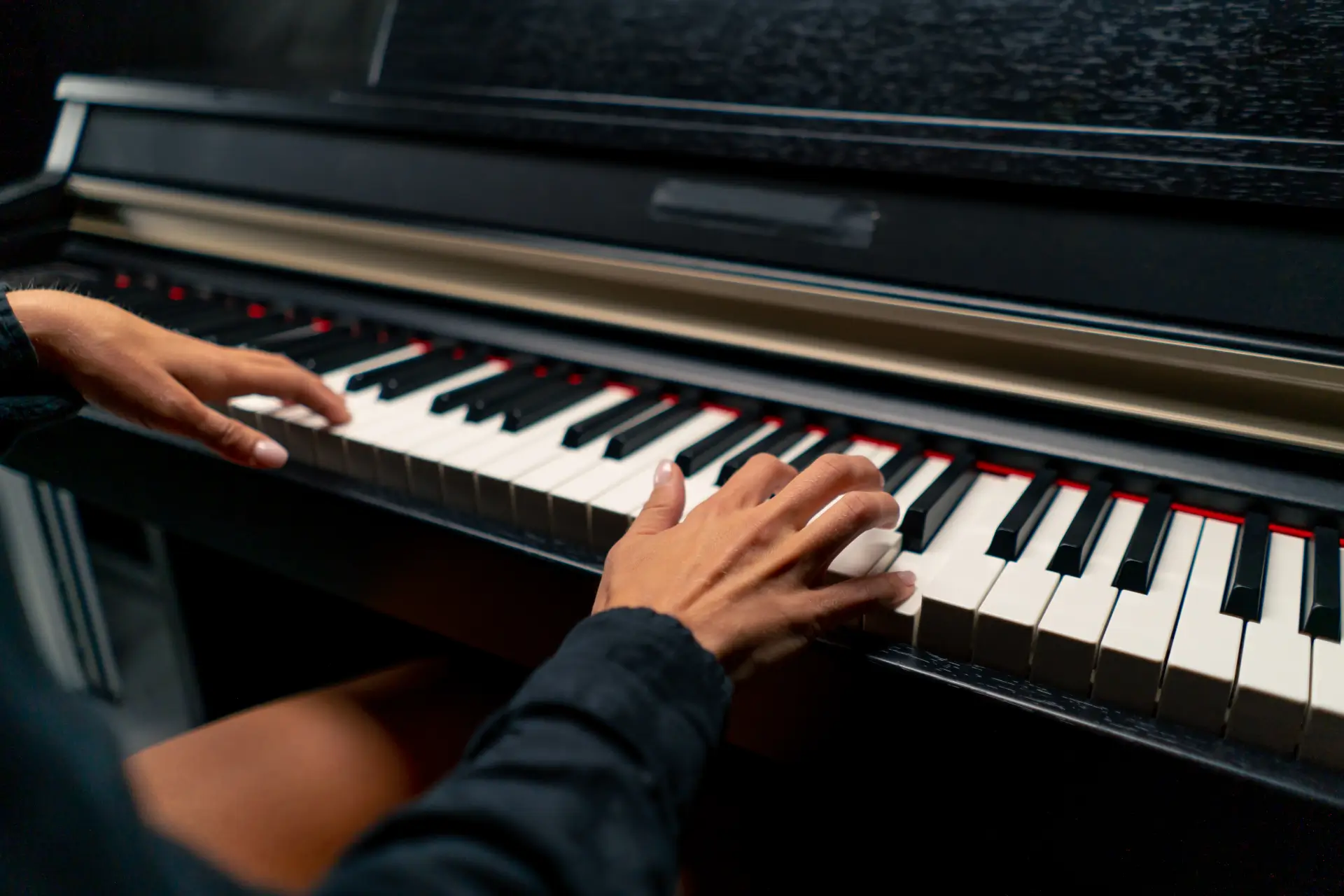Are you eager to unlock the joy and fulfillment of learning a musical instrument, such as the piano?
Table of Contents
The Power of Clarity: Goal Setting for Music Lessons
Whenever we embark on a new goal or venture, achieving clarity about what we hope to achieve is paramount.
It involves asking ourselves fundamental questions like:
- Why are you pursuing this goal?
- What makes it important to you?
- What are your initial objectives?
Why Clarity Matters in Music Lessons
Learning a musical instrument is a discipline of delayed gratification. Meaning, it’s a journey that doesn’t bring instant pleasure. Instead, it’s a gradual process that culminates in more substantial and long lasting rewards.
The true fun and rewards in learning an instrument emerge after investing the effort and time into the less exciting work.
At our music school in Calgary and in our music lessons online, experience with delayed gratification is one of the top benefits students hope to achieve.
Getting “comfortable with the discomfort” of delayed gratification has many proven benefits.
It’s proven to:
- Equip you with essential skills to reach long-term goals
- Teach impulse control
- Enhance academic success
- Foster social competence
- Correlate with lower levels of substance abuse and obesity
- Result in healthier stress responses.
There is so much value in learning not to chase instant pleasure, and working towards more meaningful outcomes.
An Honest Look at the Range of Experiences in Music Learning
- Frustration
- Loss of interest before mastering a piece
- Self-doubt
- Boredom
- Fear of Performance
- Resistance to practice
Experiencing these can lead people to believe that something is wrong, often causing them to quit.
However, these feelings are all a natural part of the delayed gratification process.
Feeling these points of resistance offer a crucial opportunity to push through and achieve the full benefit of the growth process and experience.
The Mindset Clarity Exercise: Your Path to Success in Music Lessons
The clarity exercise has made an immense difference in the journeys of thousands of students, both at our music school and in our online programs.
It has led students to master their instruments, but also to embark on fulfilling journeys of self discovery. Fostering deep confidence, and unleashing their full potential.
Timing Is Key
This exercise is especially impactful when you start your musical journey. It helps you frame your expectations and prepares you for moments of resistance and self-doubt.
That being said, it’s also beneficial to revisit this exercise at any stage of your learning. For maximum value, periodically repeat the exercise and reassess your progress.
Anchoring Your Progress
For music teachers, this exercise can be a valuable tool for active discussions with students.
For parents of music students, you can involve your children in this conversation. Teaching them to articulate their feelings during their own growth and learning.
Map Your Iceberg Exercise and Worksheet: Uncover Your Peak Goals and Supporting Experiences
Let’s dive into the clarity exercise I call “Mapping Your Iceberg.” This exercise uses the free visual worksheet that you can download below:
- Frustration
- Failures
- Boredom
- Times of feeling disinterested
- Disappointment
These are the supporting experiences that will play a role in achieving your ultimate goal.
1. Brainstorm your Benefits:
2. Map your Peak Goals:
Below the list of benefits on the worksheet, you’ll see your icebergs. At the pinnacle of each iceberg, write down what you believe your end goal is. For example, you might write “delayed gratification.”
3. Map your Supporting Experiences:
Now, let’s reverse engineer the process. Identify at least two supporting experiences or skills you need to acquire to reach your goal.
For example, if your goal is to develop resilience and tools for experiencing delayed gratification, two supporting experiences you’ll need could be developing patience and embracing discomfort.
Putting the Exercise into Practice
- During moments of success and gratification, reflect on the challenging experiences that brought you there.
- When you’re feeling discouraged, contextualize your feelings with the necessary growth steps to reach your goals
Building Awareness: Navigating Your Learning Process in Music Lessons
The essence of this exercise lies in building awareness of your unique learning process and beliefs. It allows you to connect the dots from where you are now to where you want to be. This self-awareness is the golden key to your learning journey.







Comments are closed.